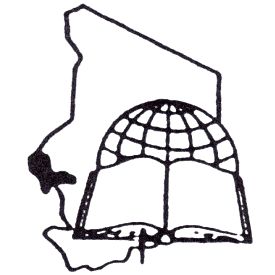V. 1-10: cf. Lé 5:14-26.
1 Voici la loi du sacrifice de culpabilité: c’est une chose très sainte. 2 C’est dans le lieu où l’on égorge l’holocauste que sera égorgée la victime pour le sacrifice de culpabilité. On en répandra le sang sur l’autel tout autour. 3 On en offrira toute la graisse, la queue, la graisse qui couvre les entrailles, 4 les deux rognons, et la graisse qui les entoure, qui couvre les flancs, et le grand lobe du foie, qu’on détachera près des rognons. 5 Le sacrificateur brûlera cela sur l’autel en sacrifice consumé devant l’Éternel. C’est un sacrifice de culpabilité. 6 Tout mâle parmi les sacrificateurs en mangera; il le mangera dans un lieu saint: c’est une chose très sainte. 7 Il en est du sacrifice de culpabilité comme du sacrifice d’expiation; la loi est la même pour ces deux sacrifices: la victime sera pour le sacrificateur qui fera l’expiation. 8 Le sacrificateur qui offrira l’holocauste de quelqu’un aura pour lui la peau de l’holocauste qu’il a offert. 9 Toute offrande cuite au four, préparée sur le gril ou à la poêle, sera pour le sacrificateur qui l’a offerte. 10 Toute offrande pétrie à l’huile et sèche sera pour tous les fils d’Aaron, pour l’un comme pour l’autre.
V. 11-21: cf. Lé 3Lé 19:5-8.11 Voici la loi du sacrifice d’actions de grâces, qu’on offrira à l’Éternel. 12 Si quelqu’un l’offre par reconnaissance, il offrira, avec le sacrifice d’actions de grâces, des gâteaux sans levain pétris à l’huile, des galettes sans levain arrosées d’huile, et des gâteaux de fleur de farine frite et pétris à l’huile. 13 A ces gâteaux il ajoutera du pain levé pour son offrande, avec son sacrifice de reconnaissance et d’actions de grâces. 14 On présentera par élévation à l’Éternel une portion de chaque offrande; elle sera pour le sacrificateur qui a répandu le sang de la victime d’actions de grâces. 15 La chair du sacrifice de reconnaissance et d’actions de grâces sera mangée le jour où il est offert; on n’en laissera rien jusqu’au matin. 16 Si quelqu’un offre un sacrifice pour l’accomplissement d’un vœu ou comme offrande volontaire, la victime sera mangée le jour où il l’offrira, et ce qui en restera sera mangé le lendemain. 17 Ce qui restera de la chair de la victime sera brûlé au feu le troisième jour. 18 Dans le cas où l’on mangerait de la chair de son sacrifice d’actions de grâces le troisième jour, le sacrifice ne sera point agréé; il n’en sera pas tenu compte à celui qui l’a offert; ce sera une chose infecte, et quiconque en mangera restera chargé de sa faute. 19 La chair qui a touché quelque chose d’impur ne sera point mangée: elle sera brûlée au feu. 20 Tout homme pur peut manger de la chair; mais celui qui, se trouvant en état d’impureté, mangera de la chair du sacrifice d’actions de grâces qui appartient à l’Éternel, celui-là sera retranché de son peuple. 21 Et celui qui touchera quelque chose d’impur, une souillure humaine, un animal impur, ou quoi que ce soit d’impur, et qui mangera de la chair du sacrifice d’actions de grâces qui appartient à l’Éternel, celui-là sera retranché de son peuple.
V. 22-27: cf. Lé 3:16, Lé 17Lé 17:10-14.22 L’Éternel parla à Moïse, et dit: 23 Parle aux enfants d’Israël, et dis: Vous ne mangerez point de graisse de bœuf, d’agneau ni de chèvre. 24 La graisse d’une bête morte ou déchirée pourra servir à un usage quelconque; mais vous ne la mangerez point. 25 Car celui qui mangera de la graisse des animaux dont on offre à l’Éternel des sacrifices consumés par le feu, celui-là sera retranché de son peuple. 26 Vous ne mangerez point de sang, ni d’oiseau, ni de bétail, dans tous les lieux où vous habiterez. 27 Celui qui mangera du sang d’une espèce quelconque, celui-là sera retranché de son peuple.
V. 28-38: cf. (Lé 10:14, 15. No 18:8-11, 18, 19.) Ex 29:24-28.28 L’Éternel parla à Moïse, et dit: 29 Parle aux enfants d’Israël, et dis: Celui qui offrira à l’Éternel son sacrifice d’actions de grâces apportera son offrande à l’Éternel, prise sur son sacrifice d’actions de grâces. 30 Il apportera de ses propres mains ce qui doit être consumé par le feu devant l’Éternel; il apportera la graisse avec la poitrine, la poitrine pour l’agiter de côté et d’autre devant l’Éternel. 31 Le sacrificateur brûlera la graisse sur l’autel, et la poitrine sera pour Aaron et pour ses fils. 32 Dans vos sacrifices d’actions de grâces, vous donnerez au sacrificateur l’épaule droite, en la présentant par élévation. 33 Celui des fils d’Aaron qui offrira le sang et la graisse du sacrifice d’actions de grâces aura l’épaule droite pour sa part. 34 Car je prends sur les sacrifices d’actions de grâces offerts par les enfants d’Israël la poitrine qu’on agitera de côté et d’autre et l’épaule qu’on présentera par élévation, et je les donne au sacrificateur Aaron et à ses fils, par une loi perpétuelle qu’observeront les enfants d’Israël. 35 C’est là le droit que l’onction d’Aaron et de ses fils leur donnera sur les sacrifices consumés par le feu devant l’Éternel, depuis le jour où ils seront présentés pour être à mon service dans le sacerdoce. 36 C’est ce que l’Éternel ordonne aux enfants d’Israël de leur donner depuis le jour de leur onction; ce sera une loi perpétuelle parmi leurs descendants. 37 Telle est la loi de l’holocauste, de l’offrande, du sacrifice d’expiation, du sacrifice de culpabilité, de la consécration, et du sacrifice d’actions de grâces. 38 L’Éternel la prescrivit à Moïse sur la montagne de Sinaï, le jour où il ordonna aux enfants d’Israël de présenter leurs offrandes à l’Éternel dans le désert du Sinaï.
Sacrifices To Make Things Right
(Leviticus 5.14-19)The Lord said:
1 The sacrifice to make things right is very sacred. 2 The animal must be killed in the same place where the sacrifice to please me is killed, and the animal's blood must be splattered against the four sides of the bronze altar. 3 Offer all of the animal's fat, including the fat on its tail and on its insides, 4 as well as the lower part of the liver and the two kidneys with their fat. 5 One of the priests will lay these pieces on the altar and send them up in smoke to me. 6 This sacrifice for making things right is very holy. Only the priests may eat it, and they must eat it in a holy place.
7 The ceremony for this sacrifice and the one for sin are the same, and the meat may be eaten only by the priest who performs this ceremony of forgiveness.
8 In fact, the priest who offers a sacrifice to please me may keep the skin of the animal, 9 just as he may eat the bread from a sacrifice to give thanks to me. 10 All other grain sacrifices—with or without olive oil in them—are to be divided equally among the priests of Aaron's family.
Sacrifices To Ask the Lord's Blessing
The Lord said:
11 Here are the instructions for offering a sacrifice to ask my blessing: 12 If you offer it to give thanks, you must offer some bread together with it. Use the finest flour to make three kinds of bread without yeast—two in the form of loaves mixed with olive oil and one in the form of thin wafers brushed with oil. 13 You must also make some bread with yeast. 14 Give me one loaf or wafer from each of these four kinds of bread, after which they will belong to the priest who splattered the blood against the bronze altar.
15 When you offer an animal to ask a blessing from me or to thank me, the meat belongs to you, but it must be eaten the same day. 16 It is different with the sacrifices you offer when you make me a promise or voluntarily give me something. The meat from those sacrifices may be kept and eaten the next day, 17-18 but any that is left over must be destroyed. If you eat any of it after the second day, your sacrifice will be useless and unacceptable, and you will be both disgusting and guilty.
19 Don't eat any of the meat that has touched something unclean. Instead, burn it. The rest of the meat may be eaten by anyone who is clean and acceptable to me. 20-21 But don't eat any of this meat if you have become unclean by touching something unclean from a human or an animal or from any other creature. If you do, you will no longer belong to the community of Israel.
22 The Lord told Moses 23 to say to the people:
Don't eat the fat of cattle, sheep, or goats. 24 If one of your animals dies or is killed by some wild animal, you may do anything with its fat except eat it. 25 If you eat the fat of an animal that can be used as a sacrifice to me, you will no longer belong to the community of Israel. 26 And no matter where you live, you must not eat the blood of any bird or animal, 27 or you will no longer belong to the community of Israel.
28 The Lord also told Moses 29-30 to say to the people of Israel:
If you want to offer a sacrifice to ask my blessing, you must bring the part to be burned and lay it on the bronze altar. But you must first lift up the choice ribs with their fat to show that the offering is dedicated to me. 31 A priest from Aaron's family will then send the fat up in smoke, but the ribs belong to the priests. 32-33 The upper joint of the right hind leg is for the priest who offers the blood and the fat of the animal. 34 I have decided that the people of Israel must always give the choice ribs and the upper joint of the right hind leg to Aaron's descendants 35 who have been ordained as priests to serve me. 36 This law will never change. I am the Lord!
37 These are the ceremonies for sacrifices to please the Lord, to give him thanks, and to ask for his blessing or his forgiveness, as well as the ceremonies for those sacrifices that demand a payment and for the sacrifices that are offered when priests are ordained. 38 While Moses and the people of Israel were in the desert at Mount Sinai, the Lord commanded them to start offering these sacrifices.

